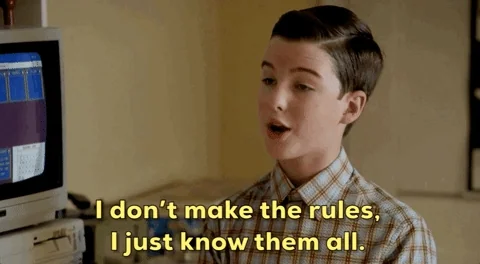You're at a bus stop and ask the person standing next to you, "What's the time?"
The person gives you a strange look before answering your question.
You wonder, "Did I ask the wrong question? Was my grammar incorrect?"

The problem isn't with your grammar or the question itself.
The question must be asked indirectly to make it sound polite.
An indirect question is a more polite way to ask for information, especially when talking to strangers or people you don't know well.
Direct and Indirect Questions
In English, you can ask a question in two ways: directly or indirectly.
Direct Questions
Example: "What time is it?"
Use direct questions when talking to people you know well or in informal situations.
 Photo by Toa Heftiba on Unsplash
Photo by Toa Heftiba on UnsplashIndirect Questions
Example: "Could you tell me what time it is?"
Use indirect questions when you:
Are asking for help/information from strangers or people you don't know very well.
Are making formal requests.
Want to be more polite in asking for help/favor from friends.
 Photo by freestocks on Unsplash
Photo by freestocks on UnsplashIndirect questions make your requests sound more polite and formal.
You can ask an indirect question in three easy steps!
Forming Indirect Questions
Step 1: Start with an introductory phrase.
When you ask an indirect question, you add an introductory phrase before your question.
Here are some examples of introductory phrases you can use.
Can/could you tell/show me…?
Do you know…?
Would you mind telling/showing me…?
Have you any idea…?
You can find more introductory phrases at BBC Learning English.
 Photo by Brett Jordan on Unsplash
Photo by Brett Jordan on UnsplashStep 2: Add the question word OR if/whether.
Then, you'll add the question word such as what, when, where, how, or if/whether.
Could you tell me what...?
Do you know when...?
Would you mind telling me how...?
Have you any idea where...?
Do you know if…?
Subscribe for more quick bites of learning delivered to your inbox.
Unsubscribe anytime. No spam. 🙂
Forming Indirect Questions (cont.)
Step 3: Add the information you need.
Finally, you'll add the information you want to know.
Could you tell me what the time is?
Do you know when the shop will open?
Would you mind telling me how this machine works?
Have you any idea where the nearest grocery store is?
Do you know if the store is still open?
Quiz: Practice asking for help politely.
 Photo by Grab on Unsplash
Photo by Grab on UnsplashYou are looking for pet supplies at a grocery store. From the questions below, choose an indirect question to ask a store employee for help.
A. "Where's the aisle for pet supplies?"
B. "Excuse me, where's the aisle for pet supplies?"
C. "Could you tell me where the aisle for pet supplies is?"
Quiz
From the above scenario, select the indirect question to ask for help at the grocery store.
Did you know?
Some Rules for Making Indirect Questions
Rule #1
Use the same word order (subject + verb) for indirect questions as you do for statements.
Take a look at the following questions and statement:
Joe: When is the meeting? (direct question)
Annie: Could you tell me when the meeting is? (indirect question)
Brian: The meeting is at 2:00 pm. (statement)
Notice that the subject-verb word order, "the meeting is", is the same in the statement and in the indirect question.

Rule #2
Some direct questions in present and simple past tenses use auxiliaries do/does or did instead of the be verb.
You don't use these auxiliaries in indirect questions in present or past simple tenses.
Some examples:
Did Sam call you yesterday? (direct question - past simple)
Can you tell me if Sam called you yesterday? (indirect question - past simple)
Where does Sami live? (direct question - present simple)
Can you tell me where Sami lives? (indirect question - present simple)
Here's a free resource to practice making indirect questions.
Quiz
Fill in the blank to make an indirect question: Do you know what ______________ for the year-end party?
Did you know?
Choosing Between Question Words and If/Whether
Use question words like what, where, when, and how if you're changing a direct question with a question word into an indirect question.
Use the same question word as in the direct question.
For example:
What's her last name? (direct question)
Could you tell me what her last name is? (indirect question)
 Photo by Brett Jordan on Unsplash
Photo by Brett Jordan on UnsplashYou use the if or whether in the indirect question if the direct question doesn't have a question word.
For example:
Are there enough donuts for everyone? (direct question)
Could you tell me if there are enough donuts for everyone? (indirect question)
Quiz
"Where's the cafeteria?" Fill in blank to change this into an indirect question: "Could you tell me ________ the cafeteria is?"
Did you know?
When Do You Use Indirect Questions?
Use indirect questions when:
You need to ask for information from a stranger — for example, getting directions to a certain place in a new city you are visiting.
You need to ask for help from someone you don't know well, like a coworker.
You need to ask a big favor from a friend.
You don't want to sound demanding and want to be very polite with your request.
You want to make a formal request to a teacher or a manager.
 Photo by Brett Jordan on Unsplash
Photo by Brett Jordan on UnsplashPractice: When will you use an indirect question?
Scenario 1: You and your friend are biking near the lakeshore. You realize you've left your phone at home. You need to make an urgent call for work. You decide to ask your friend if you can borrow her phone to make the call.
Scenario 2: You're at the local train station and need to ask a stranger for the time of the next train.
Scenario 3: You're waiting at the doctor's office, and need to ask the receptionist how much time it will take for your turn to come.
Scenario 4: You're at your sister's house and would like to ask her for the new salad recipe.
Quiz
In which of the above scenarios would you use and indirect question? Select all that apply:
Take Action
Your feedback matters to us.
This Byte helped me better understand the topic.

